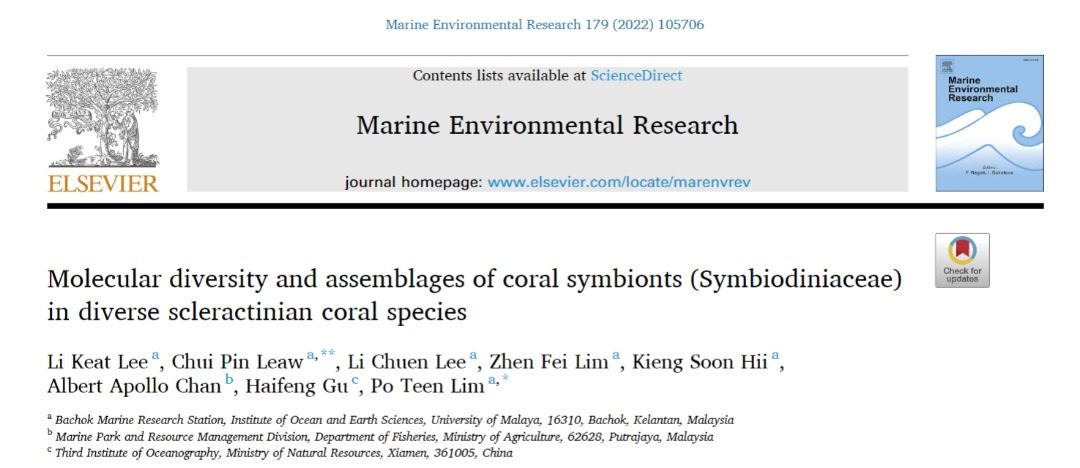Introduction
The ecosystem of coral reefs is socio-economically important in tropical to subtropical regions due to its ecological function and dependent of livelihoods on its services. The health of coral reef ecosystem has been deteriorating due to increasing anthropogenic pressures and climate changes.
The percentage of coral reef cover is also reducing over the last few decades at different levels, with no exception in islands that were designated as marine protected areas. Coral propagation and replanting were adopted in many regions as the effort to rehabilitate coral covers but was found to be less effective due to low resilience of the selected species to coral bleaching under the elevation of water temperature. It is also equally important to determine why selected coral species or types can withstand higher water temperature without any sign of bleaching under the similar scenario.
Coral reef ecosystems are particularly vulnerable to climate change (Camp et al., 2018) as ocean warming and thermal stress anomalies would cause the scleractinian corals to bleach rapidly by expulsing their algal symbionts (Brown, 1997; Fitt et al., 2001).

Figure 1. Photos of Coral reefs ecosystem taken at selected reefs in Perhentian Islands
Global climate stressors and local anthropogenic disturbances are believed to disrupt the symbiotic relationship between coral polyps and the symbiodinian algae, affecting the ecological states of equilibrium of coral reefs. With the advancement of molecular tools in the past two decades, identification and quantification of coral symbionts become more feasible and rapid tools to assess the change of coral symbiont composition. This allows improved understanding on the symbiont composition changes during the bleaching events and to allow precise assessment of resilience of various coral species.
Project members
With the aim to assess the resilience of coral species in Malaysia, coral samples were collected by SCUBA at selected islands (MPA and non-MPA) located in Peninsular Malaysia. All samples identified morphological to the nearest taxa possible. Samples kept in saline ethanol were used for species identified using COI markers, and coral symbionts composition in these coral species were quantified using metabarcoding NGS approaches.
A collaborative study was established in 2017 with researchers from Malaysia (University of Malaya and University of Malaysia Terengganu) and China (Third Institute of Oceanography, Ministry of Natural Resources, China).
Dr. Po Teen Lim and his research team from UM responsible for coral samples collection and samples analysis using molecular techniques, while Dr. James Tan from UMT focuses on coral bleaching and recovery mechanisms.
Dr. Haifeng Gu from TIO MNR and his team coordinating the efforts in environmental monitoring (especially water temperature) in selected sites and NGS analyses of coral symbionts.
The first phase of this project at Perhentian Island has been completed with the publication of coral and symbiont composition in Marine Environmental Research (MER). Please feel free to contact us if you would like to have a copy of the paper.

The link to the paper is available as follow: https://doi.org/10.1016/j.marenvres.2022.105706

Project Objectives
The specific objective of this joint project includes:
Field Activities conducted in this joint project

Photo 1: Group photo before the coral reef survey at Redang Island

Photo 2: Discussion about coral-Ocean Acidification study between Dr. James Tan & Dr. Zheng at UMT.


Photo 3: “Coral reef Bleaching Alert Report” prepared based on SST monitoring data obtained from Perhentian Islands